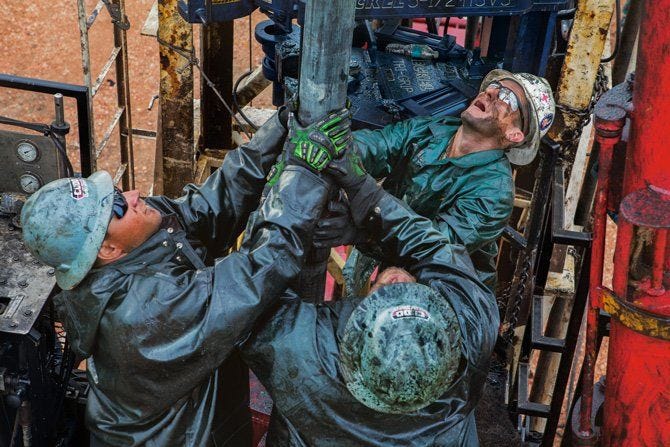Our First Laptop Class
History, rhyming
Though the practice didn’t always match the ideal, the yeoman farmer of the early American republic sought a “competency" — a landholding that would grow enough food to support a family in sturdy independence. That personal and familial ideal implied a particular set of social and political structures: small-r republicanism that shifted over time into a producerist democracy, the intent for an absence of dependency from below and domination from above, a politics that grew from the judgment of self-reliant smallholders who thought for themselves. Manhood was resilience, work ethic, firmness, steadiness, self-control, sagacity, and a capacity for sacrifice. A man did his work.
One quick example will put the idea into operation.
A long series of trials I’ve written about before grew from a moment in which a colonel of the Connecticut militia retaliated against his company officers in a political dispute over patronage appointments by choosing the local weirdo — no farm, heavy drinker, blasphemer, dependent on his parents, fondness for flowery speech and mindless wandering — as a regimental staff officer. He knew what his choice meant, as a deliberate social gesture performed in public, and so did they. Every officer in every company instantly responded by withdrawing from the regiment, refusing to obey direct orders to show up on the parade field with their companies. They went on strike, in 1814, during a war.
Tried by courts-martial, they said that yes, they had refused to obey direct orders, but bro — how does a man accept being subordinate to that? (“Were we under obligation to obey the Colonel and tamely submit to be dragged about by any creature whom the Colonel should please to appoint over us?”) They shrugged and took their punishment, because they couldn’t, as men, give obedience and deference to someone who wasn’t a man. The markers of that status were really clear.
Now, one of the ironies of Margaret Mitchell’s Gone With the Wind is that her nostalgic depiction of the glories of the slaveholding South are a pretty good description of everything people in the antebellum North meant when they talked about their loathing for the “slave power.” Ashley shows up “from his three years’ Grand Tour in Europe,” and then Scarlett falls in love with him, and then he rides up to Tara “dressed in gray broadcloth with a wide black cravat setting off his frilled shirt to perfection.” And Scarlett thinks: “Oh, why was he so handsomely blond, so courteously aloof, so maddeningly boring with his talk about Europe and books and music and poetry and and things that interested her not at all — and yet so desirable?” Ashley, she concludes, “was born of a line of men who used their leisure for thinking, not doing, for spinning brightly colored dreams that had in them no touch of reality.” The company officers of the 17th Connecticut Infantry would like a word with you, Ashley.
There were many smallholders in the antebellum South, working on family farms, many without slaves and some with a slave or two. But for the North, it was the Ashleys who were a grotesque social disease, the planter class and their foppish idiot sons; slaveholding on large estates looked like feudalism, the lord on his manor surrounded by his serfs. Large slaveholding estates implied social degeneracy and a politics of dependency, domination by wealth, and de facto aristocracy. A man on his giant plantation didn’t work; he didn’t live by the sweat of his own brow, but by the labor of others. He wasn’t entirely a man, although people who thought this also venerated Washington and Jefferson. Complicated!
And so Abraham Lincoln said that a debate between an advocate of the slave power and an opponent of the slave power was an argument between “the two principles that have stood face to face, one of them asserting the divine right of kings, the same principle that says you work, you toil, you earn bread, and I will eat it.” The ideological conflict between Free Soil and a slaveholding planter class was a fight over the meaning of work, and the Free Soil argument was that large-scale slaveholders didn’t do any. Makers and takers: a view that two parallel societies trapped together under one political roof couldn’t go on together because even their daily lives implied a different path. How do you sustain a republic while you plow your fields like a man and this Ashley freak rides around in his frilled shirt gibbering about poetry to his idiot girlfriend? As I wrote a few days ago, divergent social ideals pointed to divergent political positions: Free Speech, Free Press, Free Soil, Free Men, Fremont! We can’t live with these people, as a social instinct, became something else.
So.
The schism, formed in part around the pandemic-era split between people who shifted to Zoom meetings and the people who still had to drive the truck and lift the boxes and turn the cows into food, plants us in a place where people with toxic masculinity exchange insults with soy boys who return the favor, you fucking Nazi! This isn’t politics, but the whole range of daily choices that turn into politics without much thought about the underlying premises.
Like the antebellum political division between the “slave power” and its Free Soil opponents, the center of the contest is an idea about dependency as a social force with dangerous momentum — and also, it seems to me, it’s about a considerable divergence in competing ideas about manhood. For a good portion of the country — you will have just heard this line — manhood is resilience, work ethic, firmness, steadiness, self-control, sagacity, and a capacity for sacrifice. A man does his work.1 What’s most striking to me as a degenerate member of the laptop class is the degree to which Blue Zone existence has turned into a series of services that you buy. The gardener does the lawn while the maid service makes the bed, and then Uber Eats shows up with lunch. And then we ride over to Tara in our frilled shirts.2 Daily life is structured like living in a hotel, except that you use an app instead of calling down to the front desk, and it sucks. There are people who don’t live this way, and they hear “you’ll own nothing — and you’ll be happy!” quite a bit differently.
What the Blue Zones have built is a world in which, living on the labor of others — I’m really not kidding about that “lunch comes from Uber Eats” stuff — a line of men use their leisure for thinking, not doing, for spinning brightly colored dreams that have in them no touch of reality. Robert Reich calls them “symbolic analysts,” and Michael Bloomberg says they have to be much smarter than the idiots who merely make food, which is dumb and unimportant.

Their social world implies a politics of social dependency, domination by wealth, and de facto aristocracy, and it’s kind of funny to watch them leap to their feet to warn about the dangers of a billionaire owning a media company — they just saw that one for the first time, somehow. It does feel a great deal as if two parallel societies trapped together under one political roof can’t go on together because their daily lives, just the stuff between waking up and going to bed, powerfully imply a different path.
The moment, in its increasingly insoluble contest over the political meaning of social structure and the dailiness of our choices, feels familiar.
Disgusting! Toxic!
Postmodern Tara serves boba.



You have put into words here what I have been feeling for the past couple of years. Most of the people in my family's social circle are laptop class, but I am one of the ones responsible for the movement of tangible goods. It has affected relationships to say the least. Thank you for this.
One August my other half began freaking out and buying in hay, (thats the last month of winter here in New Zealand), we went all spring and summer without rain. He checked with our neighbour, he and his father had journals from 1902 since they farmed the land here - in over a hundred years there had never been a spring drought, I still don't know how he knew.
From across several fields my other half can see something is wrong with a horse or cow. I have researched his 'regenerative | agroecology' approach to farming, but born on the land he will know things, like an instinct, I never see. This is both from a deep knowing of place and being anchored in nature ... To take that away from people is to destroy their very soul, what we see echoed in the sadness of indigenous people generations after such loss.